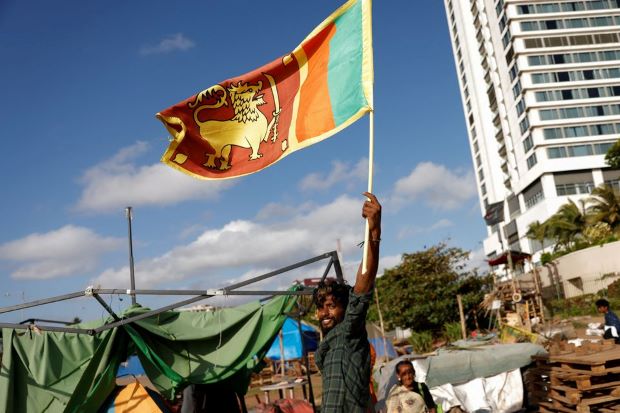22nd Amendment falls short of public protest demands says BASL
COLOMBO – The 21st Amendment to the Sri Lankan Constitution adopted last week does not place adequate checks and balances on the powers of the executive president, the country’s influential lawyers’ body said on Thursday (27).
The Bar Association of Sri Lanka (BASL) in a statement said the Amendment to the Constitution was caused by the pressure brought on by the months-long protest movement that forced the resignation of the then president Gotabaya Rajapaksa in July.
“The necessity to amend the Constitution arose as a result of the public outcry that sprung up throughout the country in response to the present economic crisis. It has been perceived that the causes of the crisis include the lack of checks and balances on the powers of the executive, including the executive presidency,” it said.
Sri Lankan lawmakers on October 21 approved the much-anticipated 22nd Amendment to the Constitution, setting the stage for empowering the Parliament over the Executive President. The 22nd Amendment was originally named the 21st Amendment and was meant to replace the 20th Amendment.
The bill was introduced a couple of months back as a means to support stability in Sri Lanka and quell the unrest ignited by the nation’s greatest financial crisis in decades.
The BASL said that the 21st Amendment “regrettably does not completely restore the status quo” which prevailed prior to the 20th Amendment.
It is essential that the Constitutional Council and the Independent Commissions which will be reconstituted under the 21st Amendment be “independent, impartial and be institutions that will help restore confidence in Sri Lanka and its Institutions,” the statement said.
The BASL reiterated that it was imperative those appointed to the Election Commission, the Public Service Commission, the National Police Commission, the Human Rights Commission of Sri Lanka, the Commission to Investigate Allegations of Bribery or Corruption, the Finance Commission and the Delimitation Commission be persons who have not only the requisite qualifications and abilities but also be those whose appointments receive wide acceptance.
Sri Lanka’s civil society was critical of the Amendment as it was not the comprehensive reforms sought by the protest movement for a system change in the island.
However, the 22nd Amendment was passed with the required two thirds majority in the 225-member assembly with cross party support.
It will restore powers of Parliament which were taken under the executive president by former president Gotabaya Rajapaksa through the 20th Amendment of 2020.
Rajapaksa had reversed the 19th Amendment which had empowered Parliament over the presidency.
The 22nd Amendment seeks to empower independent commissions to depoliticize administration as part of the wide-ranging reforms required to the Constitution first adopted in 1978.
The adoption of the 22nd Amendment in Parliament is seen as a triumph for President Ranil Wickremesinghe, who had pledged constitutional reforms to appease the demand from the street protesters.
However, the opposition parties maintain their support was based on the need to formulate reforms, a key requisite to ensure Sri Lanka gained international support in handling the worst economic crisis in decades.
-PTI



Comments are closed, but trackbacks and pingbacks are open.